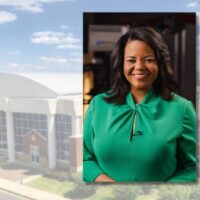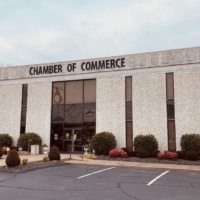A new program seeks to change the economic development narrative in rural and small-town Main Streets.
Main Street America, a program of the National Trust for Historic Preservation, recently announced the 10 organizations that were selected for the Equitable Entrepreneurial Ecosystems in Rural Main Streets Program. Nine states and Puerto Rico were selected.

“So many small communities put tremendous resources into business attraction and industrial development,” Matt Wagner, chief program officer for Main Street America, told the Daily Yonder.
However, research from a survey of nearly 2,500 small business owners in August 2020, showed that 70% of the small businesses were started by people that already lived in those communities, he said.
“They weren’t recruited or asked to move a business there,” Wagner added. “And this wasn’t just for retail, restaurants and service businesses – 92% of small scale producers and 57% of businesses with more than 20 employees were started by locals. We need to cultivate the talent that already lives in our rural communities.”
Main Street America is working with the Kauffman Foundation on the program, which will include a one-day workshop in each of the 10 participant areas. Those workshops will be open to any rural community to attend, Wagner said.
“Post this workshop, we will be working with each of our Main Street state coordinators to then select three rural Main Street communities that will be part of a more in-depth cohort group, each receiving in-community and virtual services, professional development opportunities and peer-to-peer learning exchanges,” he said.
Breanne Durham, the Washington State Main Street director and one of the programs selected, said she sees a wide range of experiences in rural Main Street communities.
“Some communities that have been ‘successfully revitalizing’ their districts for years or decades now face challenges related to housing, affordability and over-tourism,” she told the Daily Yonder. “Others struggle to find enough volunteers and funding to even start a Main Street initiative.”
She added that some communities have populations that are growing rapidly while others are dwindling.
“The keys to success regardless of the challenges faced are having strong partnerships in place and a shared vision for the future of their unique community,” Durham said.
In Oklahoma, another state selected for the program, Tamara Nelson, program coordinator, said there’s a perception that rural communities have fewer resources.
“I think that we need to uncover that that’s not necessarily true,” Nelson told the Daily Yonder. “However, in smaller communities, there aren’t as many banking opportunities. So we need to figure out if there’s a variety of access to capital for someone that’s a startup … and where can they go? If not locally, regionally?”
Oklahoma State Main Street Director Buffy Hughes told the Daily Yonder it’s exciting that there will be a one-day workshop for any rural community to take part in.
“That is open to any rural community to attend. You don’t have to be in Main Street,” Hughes said. “But it is a resource for all rural communities in Oklahoma.”
This article first appeared on The Daily Yonder and is republished here under a Creative Commons license.






